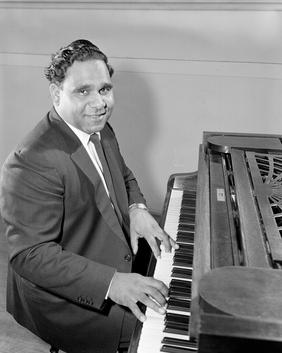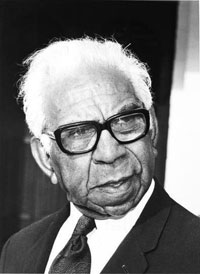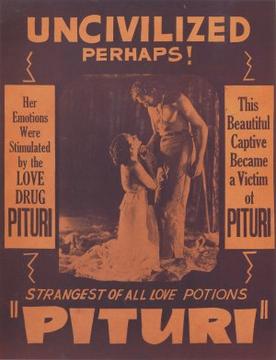Related Research Articles

Moomba is held annually in Melbourne, Australia. Run by the City of Melbourne, it is Australia's largest free community festival. The Melburnian tradition is celebrated over four days, incorporating the Labour Day long weekend, from Friday to the second Monday in March. Moomba is culturally important to Melbourne, having been celebrated since 1955, and regularly attracts up to a million people, with a record attendance of 3.8 million set in 2018.

Harold Blair was an Australian tenor and Aboriginal activist. He has been called the "last great Australian tenor of the concert hall era".

The Queen Victoria Market is a major landmark in the central business district (CBD) of Melbourne, Victoria, Australia. Covering over seven hectares, it is the largest open air market in the Southern Hemisphere.

Sir Douglas Ralph Nicholls was a prominent Aboriginal Australian from the Yorta Yorta people. He was a professional athlete, Churches of Christ pastor and church planter, ceremonial officer and a pioneering campaigner for reconciliation.

Jack Perry and Douglas McKenzie — were an entertainer duo from Melbourne who were known and billed professionally as the clown act, Zig and Zag. They appeared on Australian television from its inception in 1956 to 1999 beginning with Peters Fun Fair (1956–69). They featured on the annual Moomba parade, and were regulars at annual charity events including the Good Friday Appeal for the Royal Children's Hospital. Perry was also an actor on television serials and presenter whilst McKenzie, was also a radio and television presenter and producer and former soldier. In March 1999 the duo permanently parted company after it was revealed that Jack Perry had been convicted in 1994 of indecent assault on his granddaughter.
Lin Onus, born William McLintock Onus and also known as Lin Burralung McLintock Onus, was an Australian artist of Scottish-Aboriginal origins. He was the son of activist Bill Onus.
Revel Ronald Cooper was an Indigenous Australian artist. He was a prominent member of a Noongar art movement that emerged among children living at Carrolup Native Settlement during the late 1940s and early 1950s.


The Princess Theatre, originally Princess's Theatre, is a 1452-seat theatre in Melbourne, Victoria, Australia. Established in 1854 and rebuilt in 1886 to a design by noted Melbourne architect William Pitt, it is the oldest surviving entertainment site on mainland Australia. Built in an elaborate Second Empire style, it reflects the opulence of the "Marvellous Melbourne" boom period, and had a number of innovative features, including state of the art electric stage lighting and the world's first sliding ceiling, which was rolled back on warm nights to give the effect of an open-air theatre.
The Aboriginal Advancement League was founded in 1957 as the Victorian Aborigines Advancement League (VAAL), is the oldest Aboriginal rights organisation in Australia still in operation. Its precursor organisations were the Australian Aborigines League and Save the Aborigines Committee, and it was also formerly known as Aborigines Advancement League (Victoria), and just Aborigines Advancement League.
Graham Francis "Smacka" Fitzgibbon was an Australian banjoist and vocalist in the trad jazz idiom. He was a publican in country Victoria and restaurateur in Melbourne.
Harry "Buck" Williams and Wilga Munro, known as Harry and Wilga Williams, were Aboriginal Australian musicians who performed professionally between the 1960s and 1980s, playing Aboriginal country music. They formed the band the Country Outcasts, also known as Harry Williams and the Country Outcasts.
William Townsend Onus Jnr was an Aboriginal Australian political activist, designer, and showman, also known for his boomerang-throwing skills. He was father of artist Lin Onus.
The Cummeragunja walk-off in 1939 was a protest by Aboriginal Australians at the Cummeragunja Station, an Aboriginal reserve in southern New South Wales.

Uncivilised is a 1936 Australian film directed by Charles Chauvel. It was an attempt by Chauvel to make a more obviously commercial film, and was clearly influenced by Tarzan.

The Australian Aborigines' League was established in Melbourne, Australia, in 1933 by William Cooper and others, including Margaret Tucker, Eric Onus, Anna and Caleb Morgan, and Shadrach James. Cooper was secretary of the League.
The Council for Aboriginal Rights (CAR) was founded in Melbourne in 1951 in order to improve rights for Indigenous Australians. Although based in the state of Victoria, it was a national organisation and its influence was felt throughout Australia; it was regarded as one of the most important Indigenous rights organisations of the 1950s. It supported causes in several other states, notably Western Australia and Queensland, and the Northern Territory. Some of its members went on to be important figures in other Indigenous rights organisations.
Virginia Fraser was born on 28 December 1947 in Melbourne, Victoria. She was an Australian First Nations artist, writer, curator and advocate for women artists. Her art practice consisted mainly of video and installation works, often made in collaboration with Destiny Deacon. Fraser died on 26 January 2021, aged 74.
Irene Gladys Mitchell was an Australian actor and theatre director, prominent in the little theatre movement in Melbourne.
Moomba may refer to:
References
- ↑ "Native Moomba an Exciting Show". The Age . No. 30, 001. Victoria, Australia. 25 June 1951. p. 6. Retrieved 16 May 2021– via National Library of Australia.
- ↑ Fraser, Virginia. Making a Show Of It: Indigenous entertainers and entrepreneurs in 1950s Melbourne (PDF). Melbourne: City Gallery.
- ↑ Kleinert, Sylvia (2011). "Bill Onus". Design & Art Australia Online . Retrieved 18 November 2022.
- 1 2 "Moomba - something to rave about". The Courier-mail . No. 4551. Queensland, Australia. 29 June 1951. p. 2. Retrieved 16 May 2021– via National Library of Australia.
- ↑ "An Aboriginal Moomba: Out of the Dark'". repository.monash.edu. Retrieved 16 May 2021.
- ↑ "An Aboriginal Moomba: Out of the Dark". www.ausstage.edu.au. Retrieved 16 May 2021.